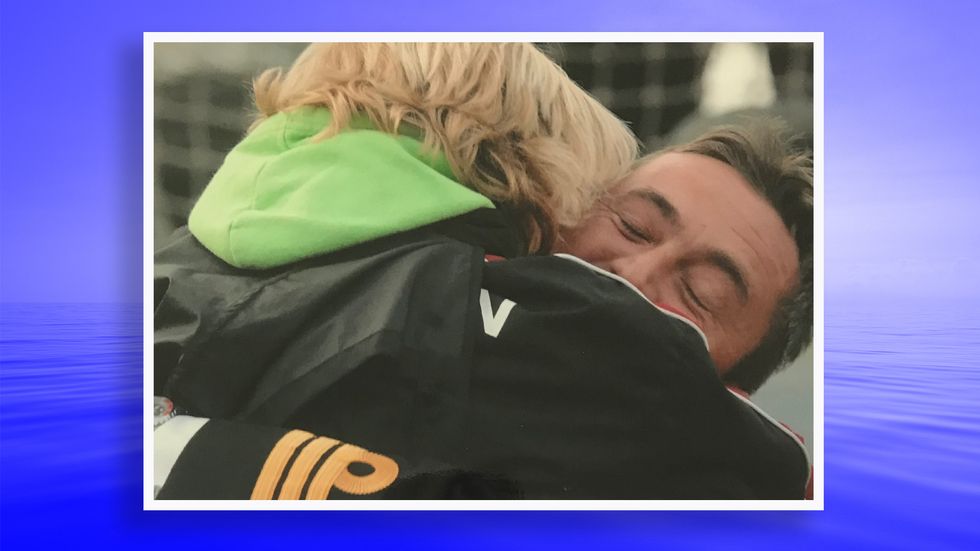It's almost seven weeks into our government-mandated self-isolation and all my days seem to have blurred into one. Without the dreaded trips to the gym, long commutes to university and inevitable train delays, much of my comfortable routine is a thing of the distant past - and for the first three weeks, that included my boyfriend. As students who still live at home, we spent the first part of the lockdown isolating in separate homes.
On March 29, Prime Minister Scott Morrison announced the strictest set of social isolation guidelines in living memory, cutting public gatherings to just two people and instructing Australians to stay home except for "essential activities". While the new rules seemed straightforward, couples who lived in separate households were left in the dark as to whether they could still see one another.
Australian states clarified the regulations, saying partners who lived in separate homes could see one another without facing fines. However, many stuck to the original program, to avoid seeing their significant other for the foreseeable future in order to reduce the risk of spreading coronavirus and to do their bit to "flatten the curve".
Under this COVID-19 isolation scenario, many couples got their first real taste of a long-distance relationship. This is more common than you might think. Close to one in 10 Australian adults reportedly have a partner that does not live with them, but the separation is not always due to great physical distance. Researchers into these kinds of relationships have identified a growing trend in recent years, coining the term "living apart together", or LATs, to describe them.
'It's usually the little intimate moments that we miss the most when we're away from someone we love.'
Jodie Milton, a relationship and intimacy coach with Practical Intimacy, an Australian web-based relationship practice, said "it's important to recognise that not all LAT relationships are the same, and there's no consensus on how to even define them.
"For some couples, LAT is a conscious choice and a distinct relationship style, while for others it's a transitional stage before choosing to live together."
****
NATASHA Tuckey, 22, from Canberra, met her now-boyfriend while on exchange in Chile last March, with no expectations it would grow into something serious. Despite their initial short-term forecast, they've been together for 14 months and counting, with approximately three-quarters of that time spent apart.
The two have battled everything from the mundane, time differences, to the feisty, Facetime arguments, but with persistence, they've made their relationship work across three continents. After their first three months together, Tuckey's partner returned to France, with Tuckey staying on in Chile until the end of the year with her exchange program.
"The last time I saw him was in January, when I spontaneously booked a flight from Chile to France to spend time with him," said Tuckey. "It had been almost six months since the last time we had seen each other."
After 24 hours of flying, Tuckey remembers taking time out, between customs and baggage claim, to brush her teeth and spray perfume, in anticipation of the reunion. Seeing him on the other side of the gate is one of her favourite memories – her partner was so excited to see her that he promptly dropped the flowers and croissants he'd been holding.
"We had passed the long-distance test," Tuckey said. "We were so happy we had actually made it work despite me living it up on exchange and him continuing his life in Paris."
Like many people in a LAT relationship, the two hope they will not be long distance forever. They had planned to spend more time together this year after Tuckey's partner was accepted into an internship program in Singapore, but they've had to put their plans on hold due to the COVID-19 border closures around the world.
"Singapore is only a seven-hour flight from Australia, in comparison to 24 hours to France, so we had plans to visit each other regularly," said Tuckey. "I would have been seeing him in two weeks, but now we have no idea the next time we will see each other… we try not to focus on it."
Much like Natasha Tuckey, Elisa Ley, 45, found herself in a "living apart together" relationship due to factors beyond her control. In her case, it was her partner's naval career that meant they were going to be spending a huge amount of time apart.
She met her future husband Johnny 26 years ago on a night out to watch the Six Nations rugby in one of London's infamous Irish pubs, the weekend before he headed out on a deployment with the Royal Navy. They kept in touch via letters for the next three months and they've been together ever since.

Due to his naval career, even when his ship was in port, Johnny was often only able to come home on weekends and could then be deployed for up to nine months at a time in any part of the world.
"We wrote letters … there was no email, no texting, no mobile phones, it was all landline. So, when they were gone for six months, they were really gone," Ley said. "You'd get a letter every two weeks, or you'd get nothing for a month and then four letters at once."
After having their son, they each kept a scrapbook full of updates and anecdotes to share on Johnny's return from sea.
"It's a way of recollecting, because when they're away all the time you can lose that connection," she explained. "We miss out on day-to-day things, like silly little things … Like that one day I'm really proud because I've caught a lizard, or when Gabe [my son] was little, he'd start walking."
Although she admits the physical distance could be really challenging, Ley has always found the bright side of her situation. "I've got this amazing photo of Gabe, he hasn't seen his dad for nine months," she said, recalling some of her favourite memories over the years. "Johnny walked off the ship and Gabe ran at him, so hard and so fast that he almost knocked his dad over… I still get a bit emotional about that."
For every year that they're together, Ley estimated they spend six months apart. So far, in 2020 they have only spent four weeks together. Although it might seem unconventional for families outside the military, their family has never known anything else.
"It's probably affected Gabe more than me," Ley said. "My pet hate is 'I don't know how you cope, I couldn't do that'. I mean come on … don't be such a bloody wuss!"
Though couples forced into LATs by COVID-19 may have physical separation in common with Natasha Tuckey and Elisa Ley, the difference lies in choice.
"Many couples have suddenly found themselves thrust into a more formal arrangement, rather than it simply being a transitionary stage in the early phase of dating," said relationship coach Milton. "It can feel as if their relationship has been forced into limbo and that they're unable to progress things naturally."
According to Milton, when you spend a lot of time apart from your partner, one of the most important things you can do is try to do some 'normal' everyday things together.
"It's nice to find ways to include each other in your day, whether it's sending a message to say, "I'm thinking of you" or sharing a photo of you brushing your teeth," Milton said. "It's usually the little intimate moments that we miss the most when we're away from someone we love."
Ley echoed the sentiment. When Johnny is away, she misses saying good morning and goodnight the most - so much so that even now, she has to send a quick "goodnight" email before she goes to sleep.
For myself, even after the rule on partners living apart was clarified, I was hesitant to lift the self-imposed separation policy on my relationship for several weeks. We've moved past that and now spend weekends together at one of our homes. A lot of the things we used to do together are impossible at present and will likely remain so for some time despite this Friday's relaxation of some restrictions.
We replaced dinner dates at restaurants and exploring national parks with Scrabble, DuoLingo and some questionable home cooking. In a strange way, those first few weeks apart made us realise how lucky we were to share the little things – even if it's just brushing our teeth together – on weekends.
Tabitha is a UNSW Media (Journalism and Communication) graduate (2018-2021) who has spent her life moving around the globe. She's an avid reader, skincare obsessive and loves nothing more than a road trip to somewhere new.






